Are you feeling a bit overwhelmed about starting university soon? You're not aloneâmany students find themselves needing to take a step back and defer their admission for various reasons, whether it's personal, financial, or health-related. Writing a deferral letter can seem daunting, but it's just a matter of expressing your situation clearly and respectfully. If you'd like to learn how to draft an effective deferral letter that gets the job done, keep reading for helpful tips and a sample template!

Personal information (name, address, contact details)
A university admission deferral request often requires presenting personal information in a clear, organized manner. Start with your full name, ensuring it matches the one used during your application. Include your home address, providing both street address and city, followed by your state or province, postal code, and country. Incorporate contact details, such as your primary email address and a phone number where you can be reached directly. Using formal format aids clarity and professionalism, establishing a solid basis for your request.
University and program details
Deferring university admission allows students to postpone their enrollment for a specified period. The University of XYZ offers a rigorous Bachelor of Science in Computer Engineering program, known for its innovative curriculum and strong industry connections. The decision to defer admission could arise from personal circumstances, financial considerations, or health-related issues that require immediate attention. Students must formally submit a request to the admissions office, outlining their reasons and providing relevant documentation. It is essential to adhere to deadlines, often falling within a specific timeframe after acceptance, to secure a place for the next academic year. Maintaining clear communication with the university ensures that all necessary steps are taken to facilitate a smooth transition upon re-enrollment.
Reason for deferral request
Student applicants often seek deferrals for university admission due to unforeseen circumstances in personal life or academic transitions. Common reasons include health issues (physical or mental), family emergencies, or the need for additional time to enhance academic profiles. A student may also wish to defer admission to pursue significant opportunities, such as internships or volunteer work, which could enrich their experiences and preparedness for higher education. For example, a prospective student may encounter illness that prevents participation in the upcoming academic semester or may choose to engage in a structured program abroad, cultivating global perspectives and skills beneficial to their intended field of study. Deferral requests typically require specific documentation and adherence to university guidelines, ensuring transparency and understanding in the admissions process.
Proposed deferral period
Many students face unexpected circumstances that prompt a request for the deferral of university admission. A typical deferral period lasts one academic year (12 months), allowing students to reapply for the following semester, such as Fall 2024. During this time, students may engage in activities like internships, volunteer work, or travel which can enhance their academic experience. Institutions usually require a formal admission deferral request letter, outlining the specific reasons for the deferral, including personal or family health issues, financial constraints, or career opportunities. Additionally, students may be asked to confirm their intention to enroll in the next academic cycle upon resuming their studies. Schools such as Harvard University or Stanford University often have specific policies guiding these requests, necessitating attention to established procedures and deadlines.
Expression of continued interest and commitment
Deferring university admission involves communicating with the educational institution to express the desire to postpone enrollment while reaffirming commitment to the program and institution. Clarity in the message is essential to outline reasons for deferral, which may include personal challenges, financial considerations, or the pursuit of work experience. Highlighting achievements and continuing engagement in relevant activities during the deferral period demonstrates ongoing commitment to the academic journey. The request should ideally reference specific dates, admission details, and any necessary documentation that supports the deferral request, establishing a clear understanding between the applicant and the admissions office at the university. Prompt and respectful communication boosts the likelihood of a favorable response, ensuring retention of a place within the desired program.
Letter Template For Deferral Of University Admission Samples
Letter template of deferral request for university admission due to personal reasons
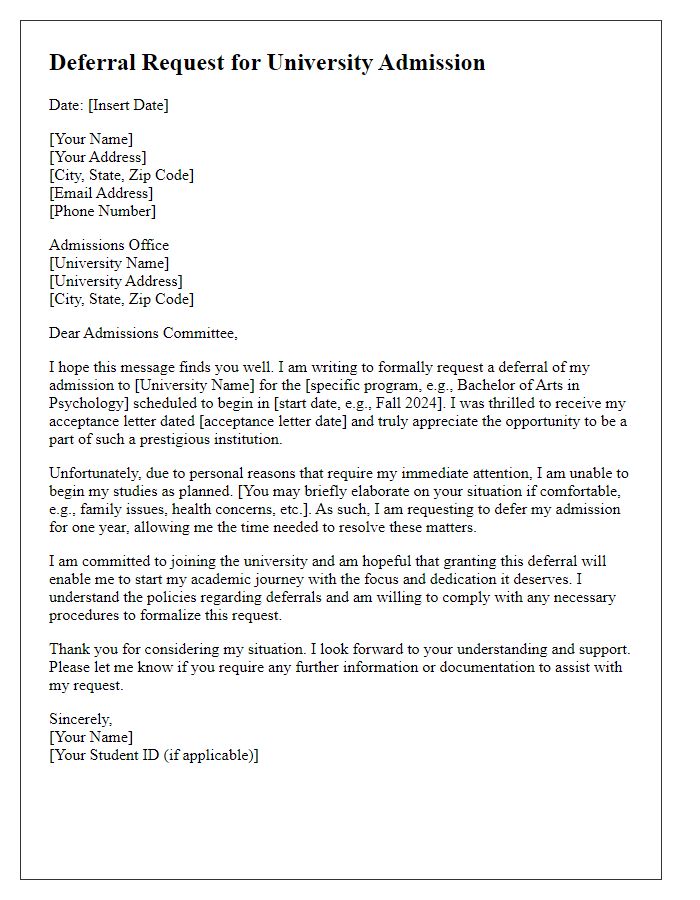
Letter template of deferral application for university admission for health issues
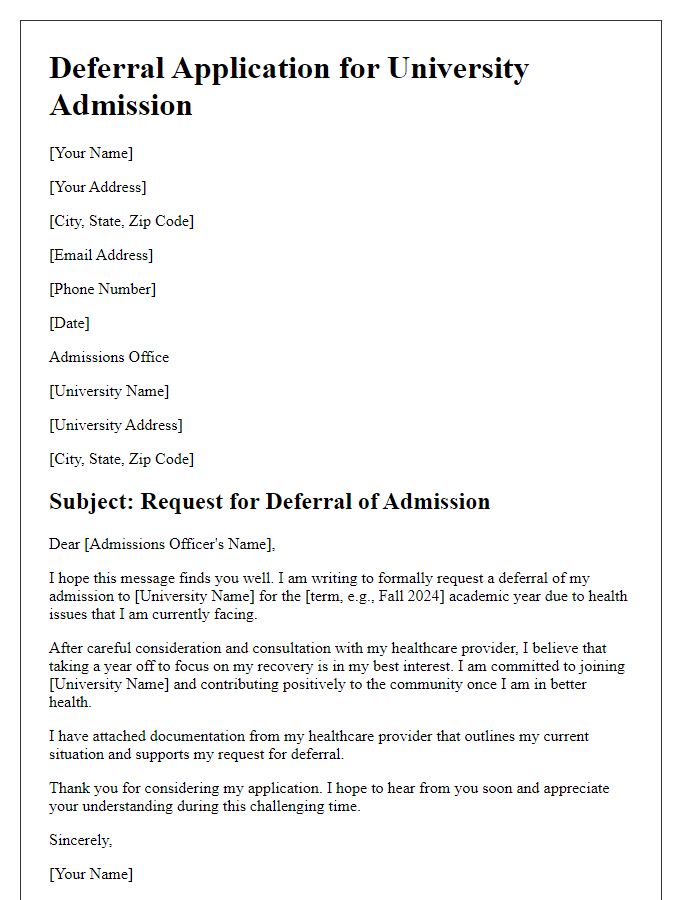
Letter template of deferral inquiry for university admission due to financial challenges
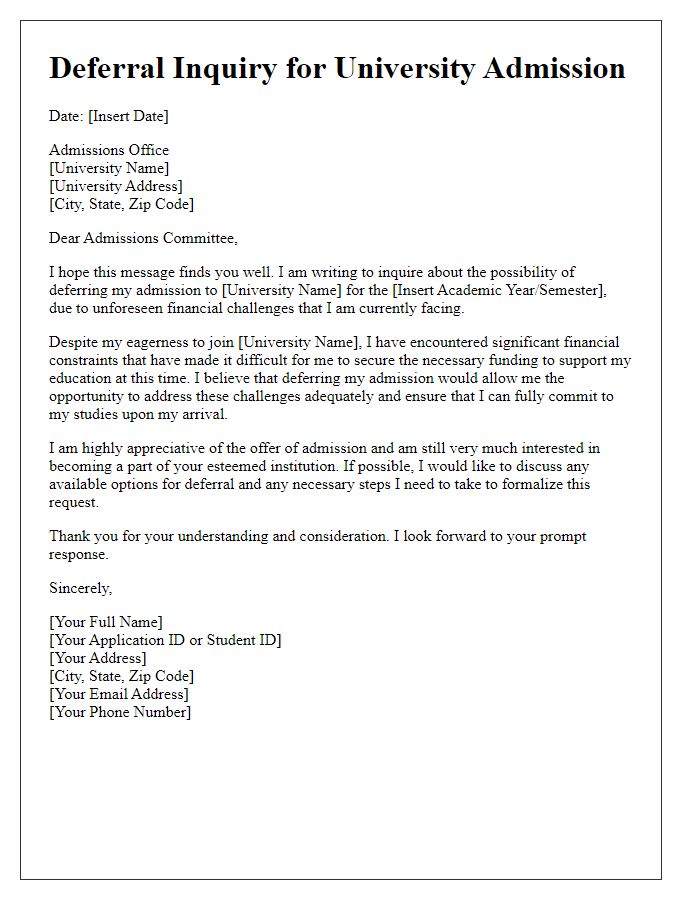
Letter template of deferral proposal for university admission caused by family matters
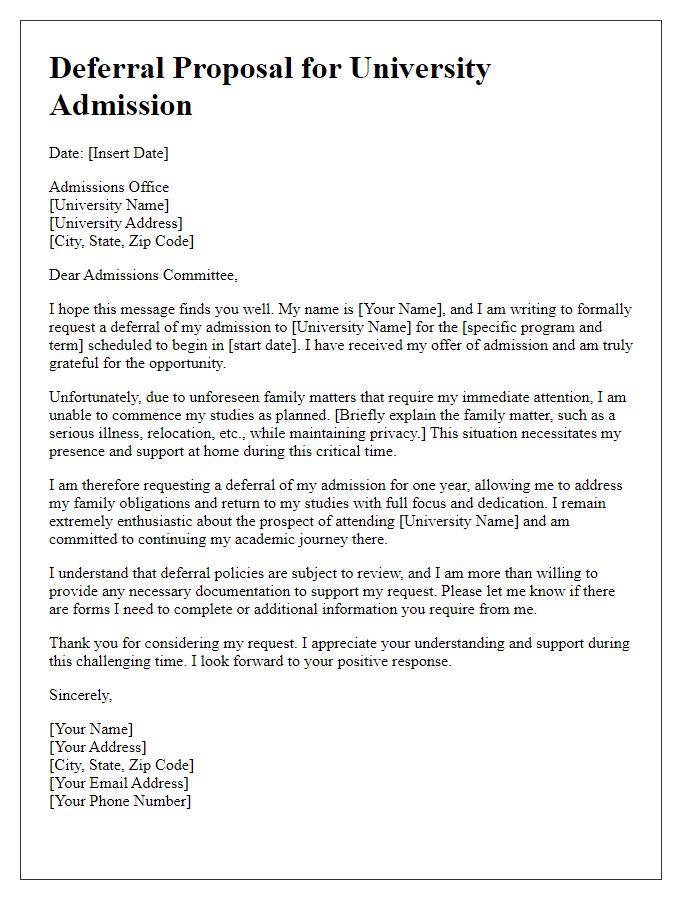
Letter template of deferral notice for university admission related to employment opportunities
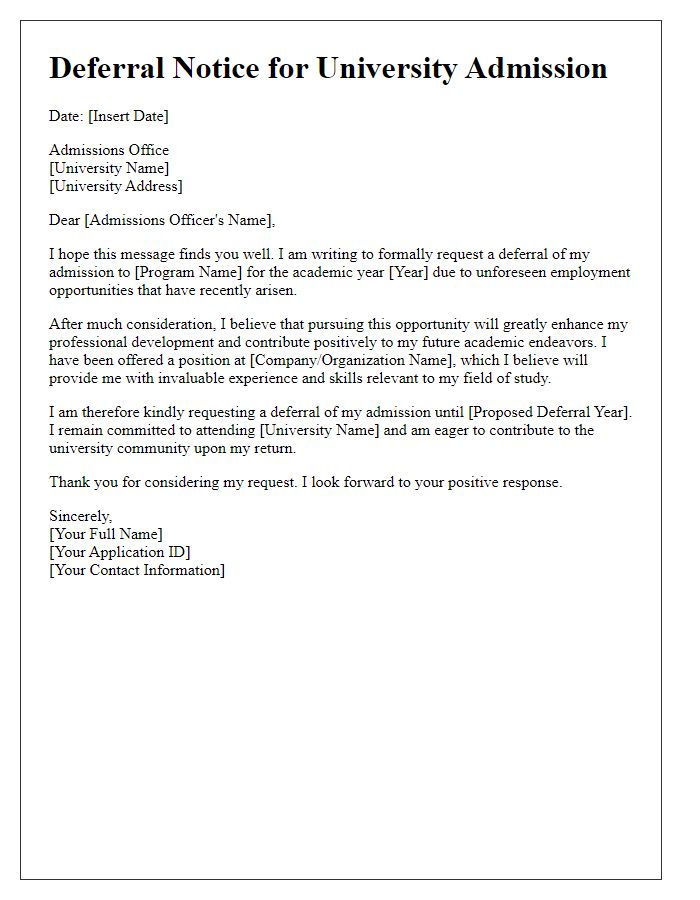
Letter template of deferral statement for university admission because of study abroad plans
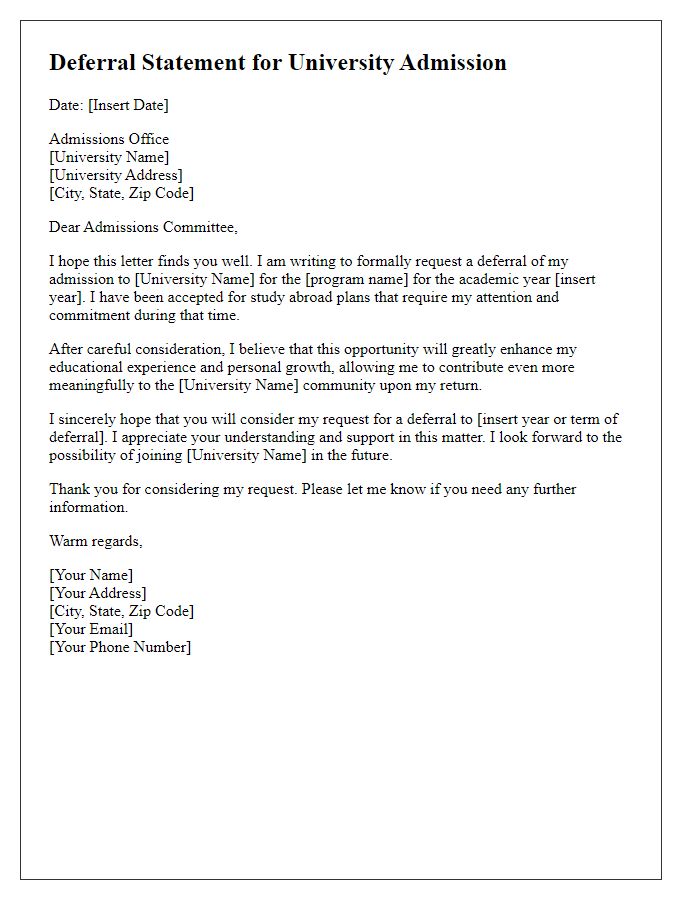
Letter template of deferral communication for university admission due to academic concerns
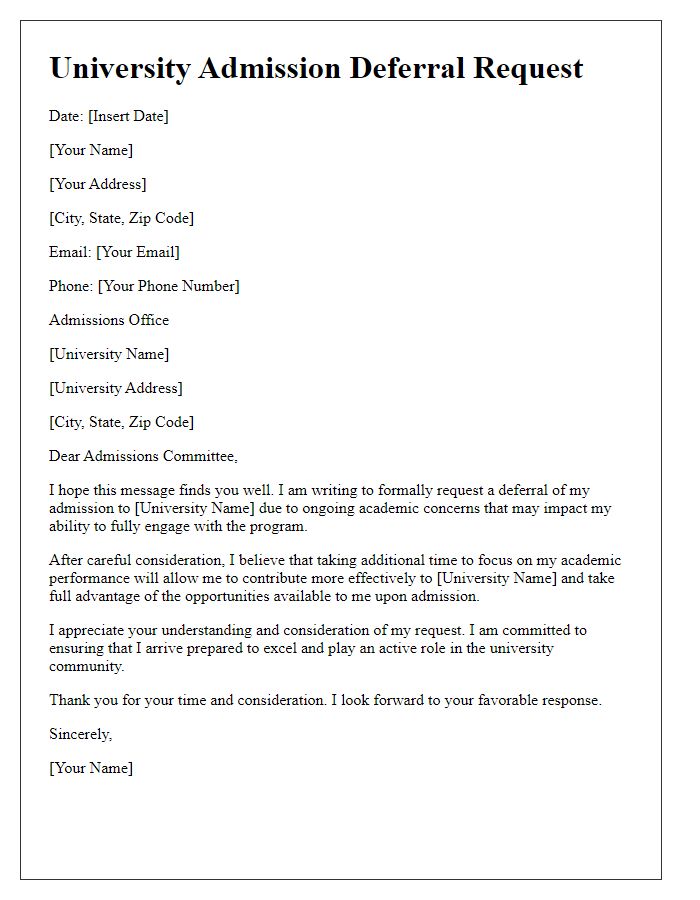
Letter template of deferral explanation for university admission linked to relocation
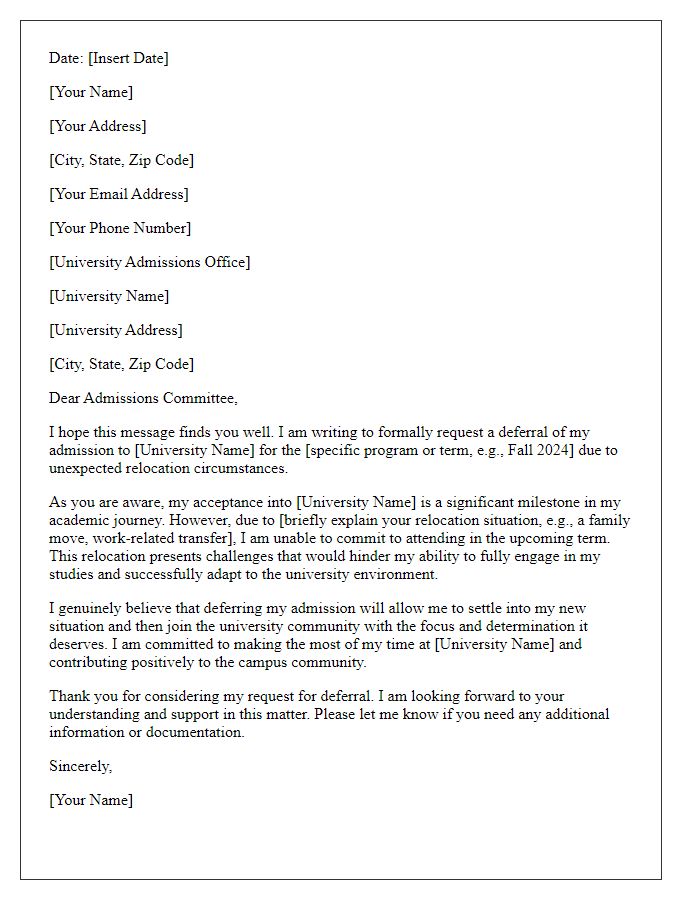
Letter template of deferral form for university admission requesting additional time
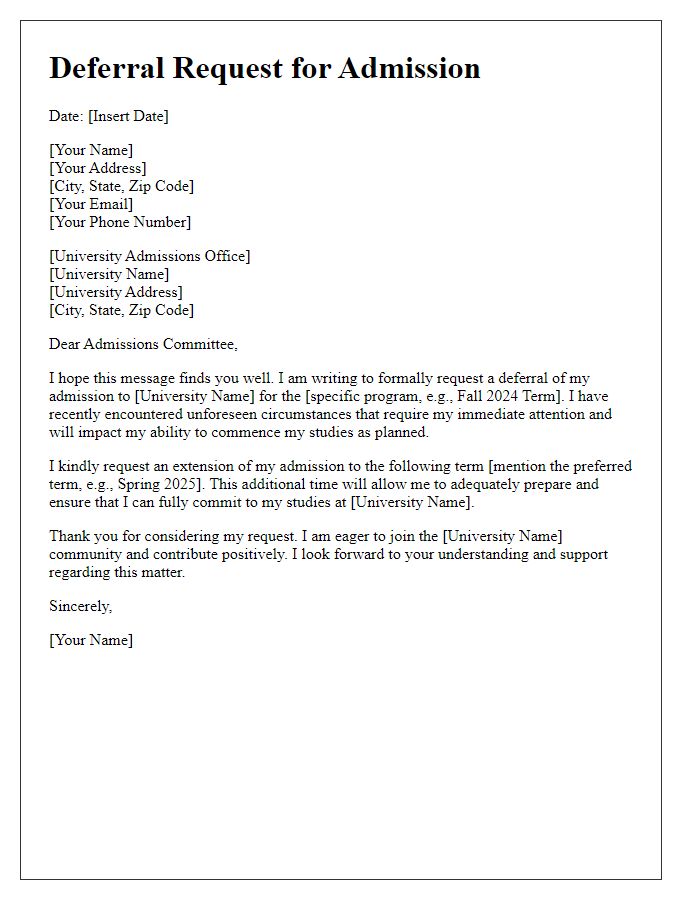

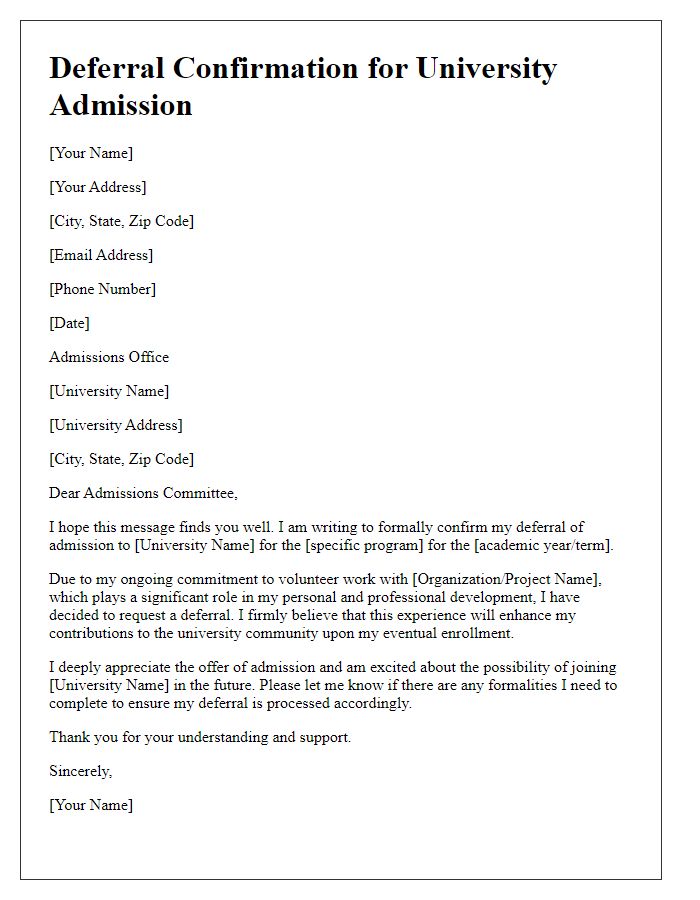


Comments